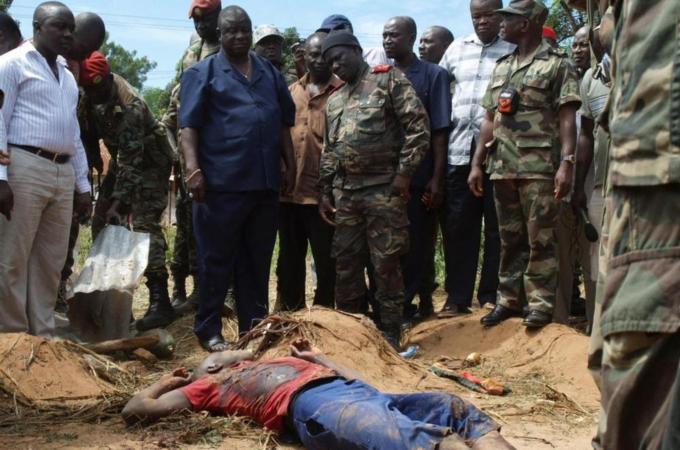Guinea-Bissau accuses Portugal of coup bid
The accusation comes after Gunmen raided an army barracks, sparking a firefight that left at least seven people dead.

Guinea-Bissau has accused Portugal, the Community of Portuguese Language Countries (CPLP) and a former prime minister, of backing a coup bid after a gunbattle that claimed at least six lives.
Gunmen staged a pre-dawn raid on the barracks of an elite army unit near the capital’s airport on Sunday, sparking a firefight in the latest unrest to blight the chronically unstable country.
“The government considers Portugal, the CPLP and Carlos Gomes Junior as the instigators of this attempt at destabilisation,” a government statement, read out by Communications Minister Fernando Vaz, said.
Its aim had been to overthrow the transitional government, undermine the political process, bring Gomes Junior back to power and justify an international “stabilisation” force, the statement added.
Witnesses said the raid had been led by Captain Pansau N’Tchama, the head of a commando unit that assassinated president Joao Bernardo Vieira in 2009.
It was not immediately clear why N’Tchama might have carried out the assault, but the captain is a former associate of the government overthrown in an April 12 coup.
 |
| Witnesses said the raid had been led by Captain Pansau N’Tchama, the head of a commando unit that assassinated president Joao Bernardo Vieira in 2009 [AFP] |
That coup toppled the government of Carlos Gomes Junior, interrupting a presidential election between the first and second rounds, which he was leading after the first round.
N’Tchama is a former member of the “red berets” and returned last week from Portugal, where he had been undergoing military training since July 2009, security sources said.
High alert
In the hours after the raid, army vehicles criss-crossed Bissau, although the situation in the capital remained calm.
Troops and police were also out in force at the airport and in the area leading to the capital.
Army chief-of-staff General Antonio Indjai, who led the April coup, visited the barracks after Sunday’s attack, as well as army headquarters in central Bissau.
Following the April coup his junta ostensibly handed power to a transitional government. But the coup leaders remain influential: it was they who chose Manuel Serifo Nhamadjo for the role of interim president.
In a speech last month however, Nhamadjo insisted that his government was “not under the army’s orders, either in form or substance”. He called on the international community to back the fight against drug-trafficking and help organise elections in 2013.
The country’s instability has allowed drug traffickers operating between South America and Europe to make it a hub for their activities in recent years, with senior military officers believed to be involved in the trafficking.
After the April coup the European Union, the country’s chief trading partner, suspended aid and imposed sanctions on a number of military officers, including Indjai.
But the West African bloc ECOWAS has recognised the transitional administration.
Since independence from Portugal in 1974, the army and state in the nation of 1.6 million people have remained in
constant conflict as no president has ever completed a full term in office.